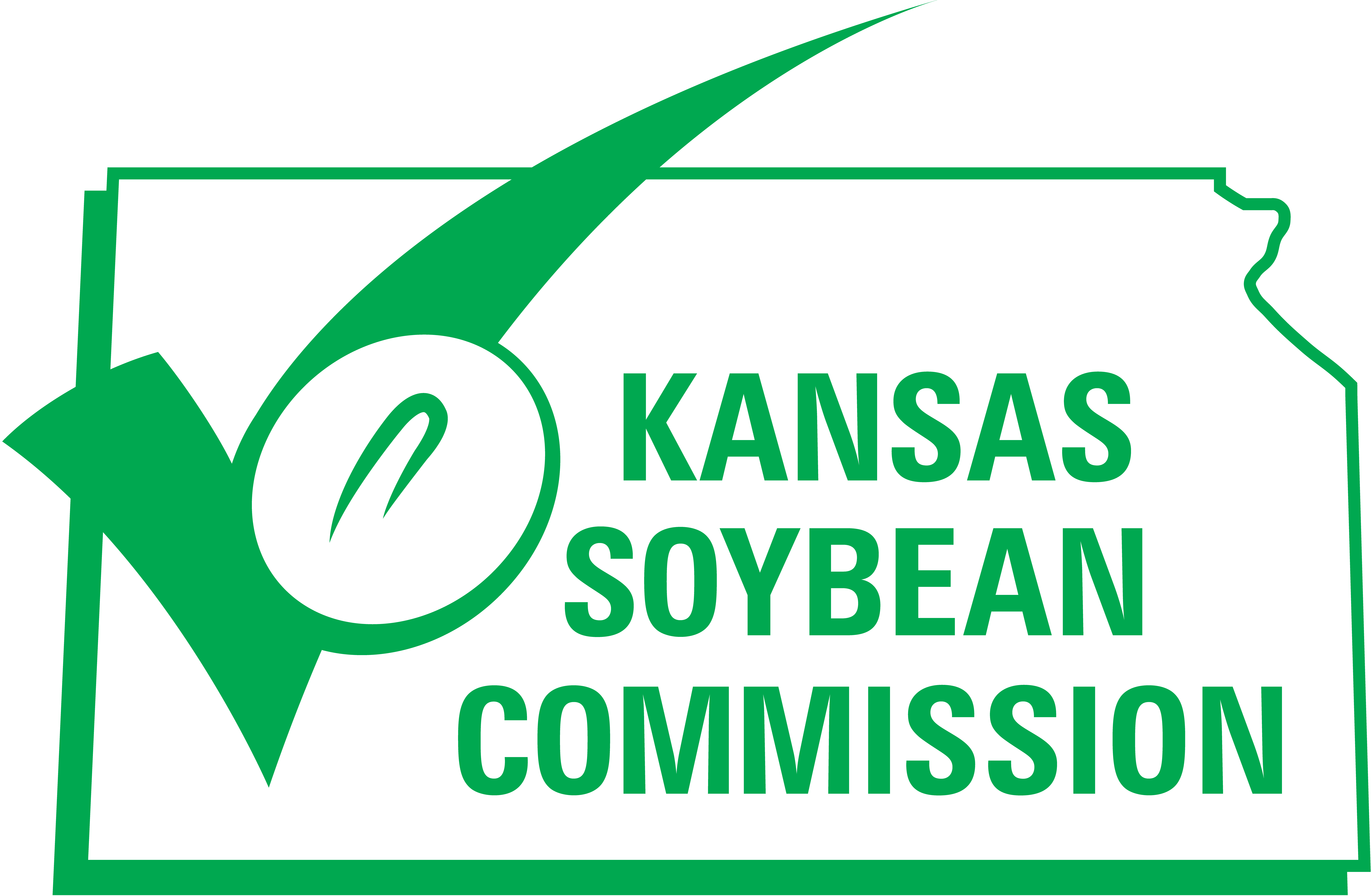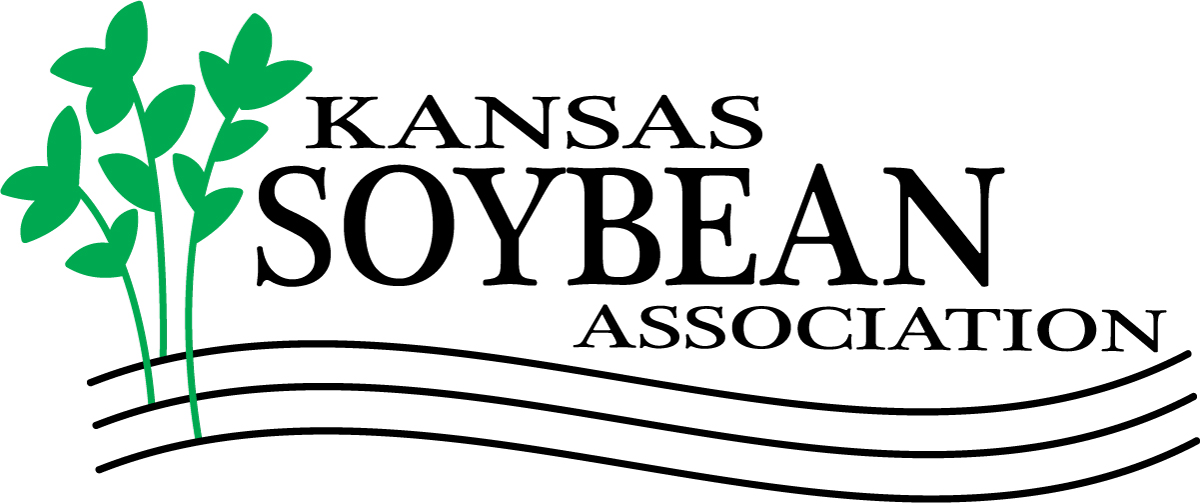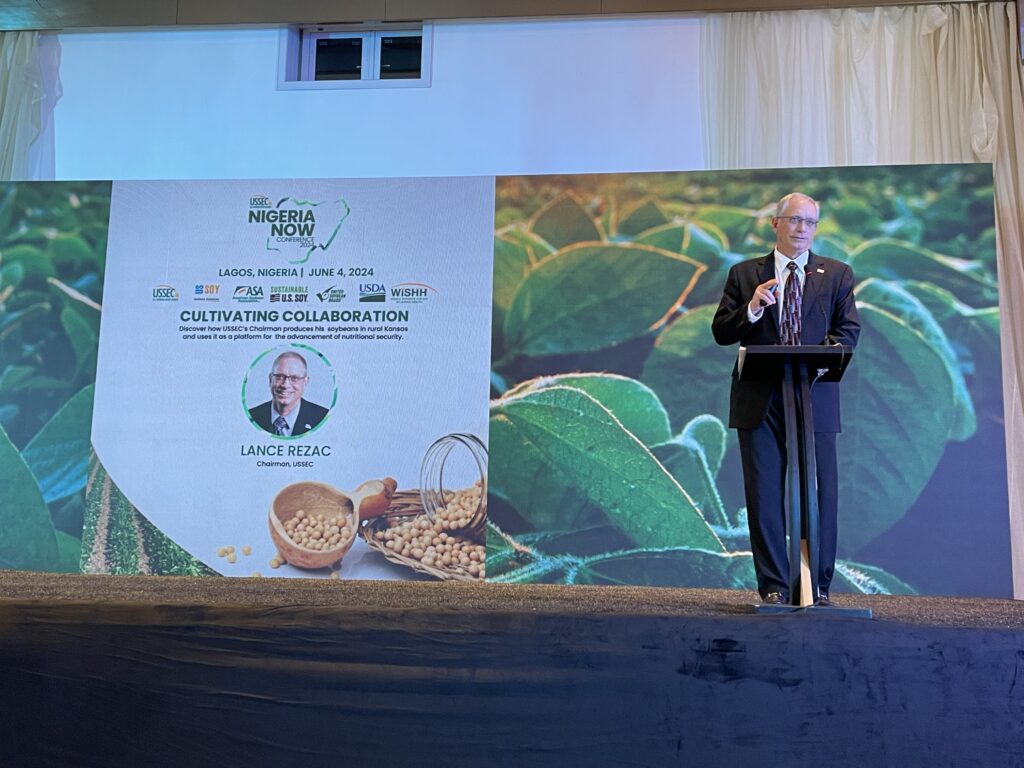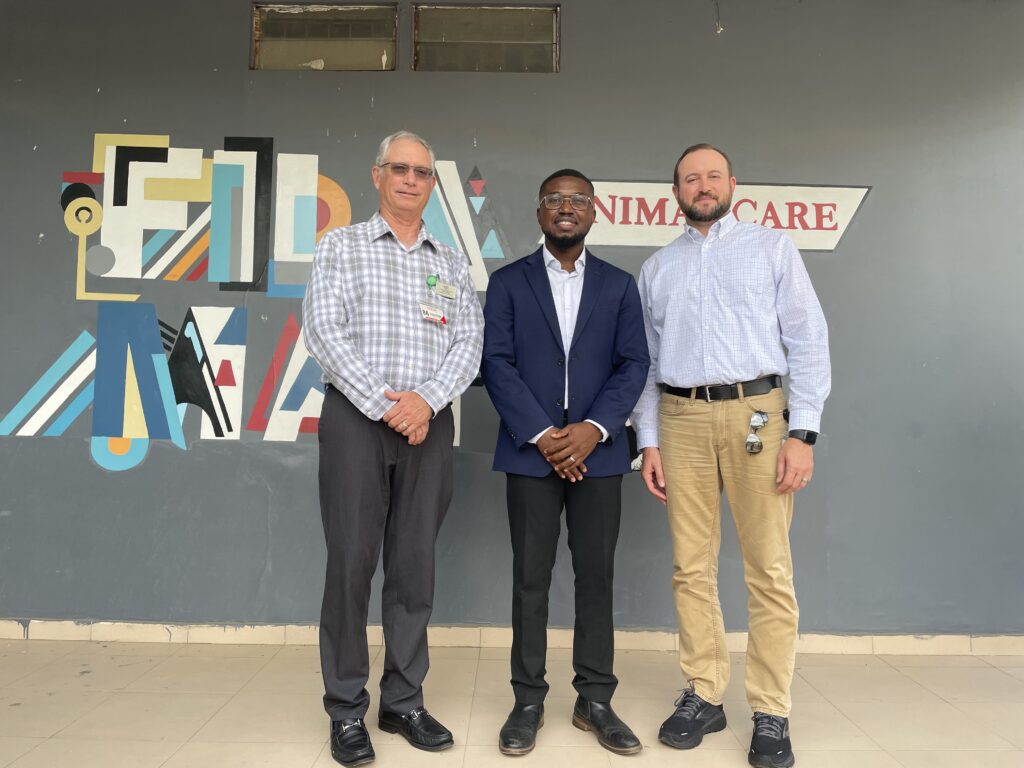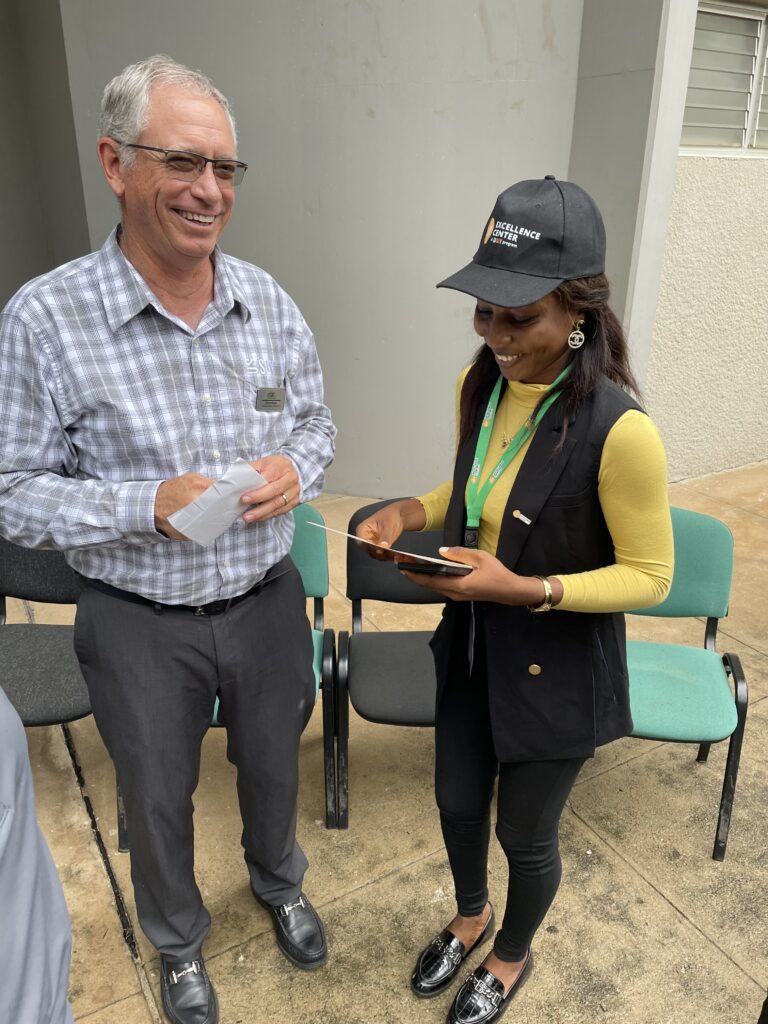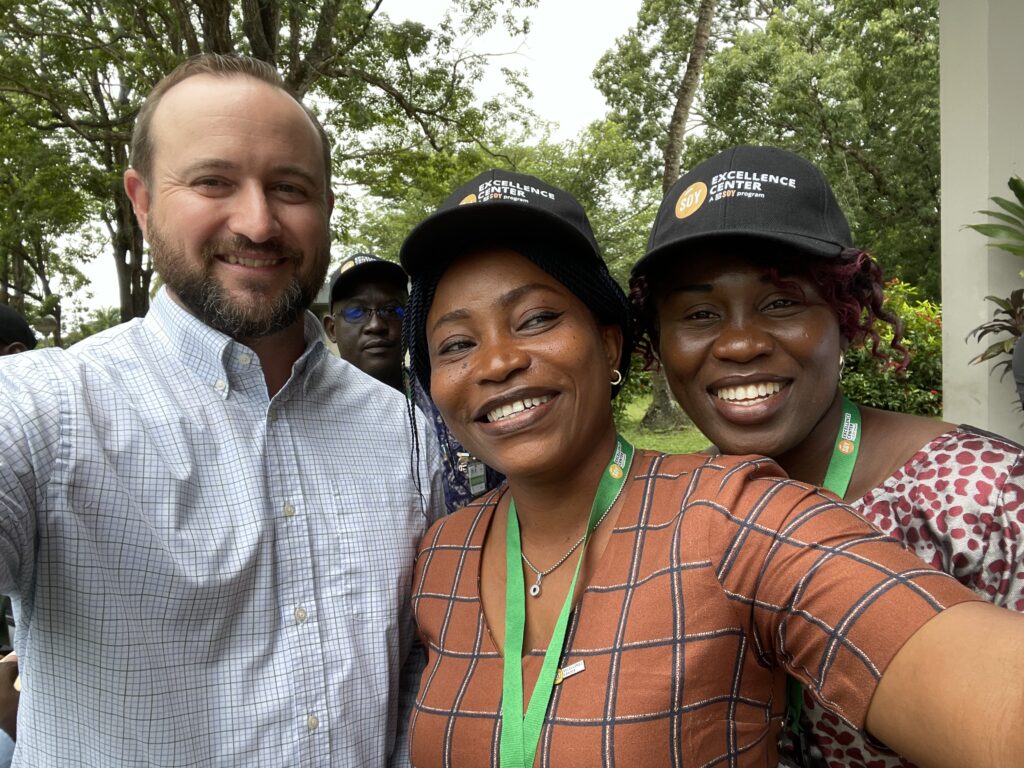Nigeria trip brings opportunity for U.S. soybean farmers
With nearly 220 million people already and a yearly growth rate of 2.35%, Nigeria’s population is projected to grow to 380 million people by 2050. Nigeria identifies a need for more protein, and U.S. soybean farmers are positioning themselves, through the work of the U.S. Soybean Export Council, to deliver in the future. USSEC chairman Lance Rezac, Onaga, and Kansas Soybean Commission Administrator Kaleb Little joined a small trade mission to Nigeria June 2-7.
The mission included a visit to the U.S. Ag Consulate, Nigeria Now Conference, stakeholder meetings, and a Soy Excellence Center graduation ceremony. Currently, there are no U.S. soybeans imported into Nigeria, but USSEC believes there is tremendous long-term potential. Building trust with purchasers now could help put U.S. Soy at the top of the list when they start importing.
The vision for Soy Excellence Centers is to create a network of tomorrow’s soy leaders across the globe. The centers provide protein enterprises with work force training and capacity building programs to enhance productivity in the protein value chain of emerging markets. USSEC’s trade team had the opportunity to hand completion certificates to over 40 individuals completing a weeklong poultry course.
Since 2019, SEC Nigeria has conducted 56 training courses that have reached nearly 2,300 individuals. Former participants shared testimonials on the life-changing nature of these trainings and what they have done to elevate farmers, farms, and the whole community. KSC Administrator Little says one of the graduates had a small poultry flock to feed his family, and after completing the training, he was able to grow the flock to now feed others in his community.
At the U.S. Consulate visit, the group met with Dr. Christopher Bielecki, U.S. Ag Counselor for Foreign Agricultural Service/USDA. Nigeria currently has restrictions on imports from all countries, data indicates the country has no way of growing enough food to feed its population without imports. Nigerian cuisine relies on soybean oil, providing an opportunity for U.S soybean farmers. In the last 10 years, soybean production in the country has grown, however, it reports some of the lowest yield and acre numbers in the world.
USSEC hosted the Nigeria Now Conference, which aims to bring U.S. soybean industry leaders and exporters together with key stakeholders from the Nigerian soybean value chain to address the availability, access, utilization and stability needed to achieve protein security.
Nigeria cannot produce the amount of protein their growing population needs. As security, stability and efficiency in the government is improved, it could mean a significant soybean market opportunity in the future. As USSEC continues to build trust in U.S. Soy for long-term potential, trade mission trips with U.S. farmers are vital.
Top right: USSEC Chairman, Lance Rezac addresses attendees at the Nigeria Now Conference. Below left: Rezac and KSC Administrator Kaleb Little visit Animal Care, a poultry & egg production facility. Below middle and right: Rezac and Little engage with SEC class participants.
